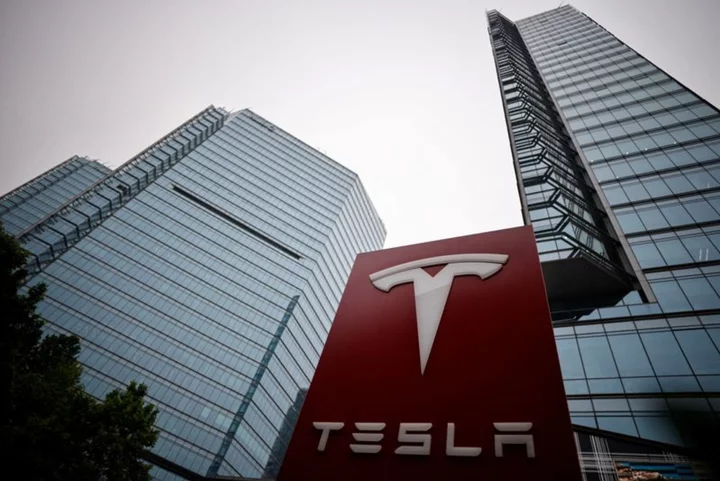By Dan Levine and Hyunjoo Jin
An attorney suing Tesla over a fatal accident cited an internal safety analysis conducted by the company that showed it knew about a steering malfunction in its Autopilot driver assistant feature about two years earlier.
The disclosure came during closing arguments on Tuesday in a California state court in the first U.S. trial over allegations that Autopilot led to a death. The plaintiffs are seeking a combined $400 million jury award, excluding punitive damages. The trial's outcome could help shape similar cases across the country.
The civil lawsuit alleges the Autopilot system caused owner Micah Lee's Model 3 to suddenly veer off a highway east of Los Angeles at 65 miles per hour (105 km per hour), strike a palm tree and burst into flames, all in the span of seconds.
The 2019 crash killed Lee and seriously injured his two passengers, including a then-8-year-old boy who was disemboweled, court documents show. The lawsuit, filed against Tesla by the passengers, accuses the company of knowing that Autopilot and other safety systems were defective when it sold the car.
Tesla has denied liability, saying Lee consumed alcohol before getting behind the wheel. The electric-vehicle maker also claims it was unclear whether Autopilot was engaged at the time of the crash.
Tesla has been testing and rolling out its Autopilot and more advanced Full Self-Driving (FSD) system, which Chief Executive Elon Musk has touted as crucial to his company's future but which has drawn regulatory and legal scrutiny.
Jonathan Michaels, who represents the passengers, showed jurors a 2017 internal Tesla safety analysis identifying "incorrect steering command" as a defect, involving an "excessive" steering wheel angle.
"They predicted this was going to happen. They knew about it. They named it," Michaels said. Tesla developed a protocol to deal with customers who experienced it, he said, and instructed employees to accept no liability or responsibility for the problem.
Tesla attorney Michael Carey briefly addressed jurors before a break, saying Michaels' arguments were "just not true." Carey is expected to continue later on Tuesday.
Michaels argued Tesla released Autopilot in an experimental stage because the company desperately needed to increase market share.
"They had no regard for the loss of life," he said.
(Reporting by Dan Levine; Editing by Richard Chang and Jonathan Oatis)

